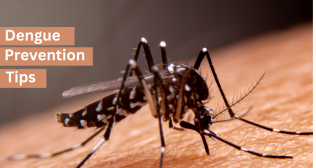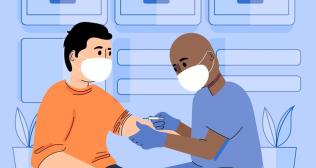
Antimicrobial Resistance (AMR): A Global Health Crisis and What You Can Do to Prevent It
Antimicrobial Resistance (AMR) poses a critical challenge to healthcare worldwide, threatening the effectiveness of antibiotics and the ability to treat infectious diseases. As bacteria and other microbes adapt to survive the drugs designed to kill them, they develop resistance, rendering many treatments ineffective. AMR is largely driven by improper use of antibiotics, which accelerates the evolution of resistant strains. Addressing this issue requires both awareness and action by individuals and healthcare systems alike.
What Is AMR and Why Is It Dangerous?
AMR occurs when bacteria, viruses, fungi, and parasites evolve to resist the effects of medications that were previously effective in treating infections they cause. This means common infections like urinary tract infections, pneumonia, and even wounds can become harder, or sometimes impossible, to treat. AMR is an urgent public health threat, not only because it makes routine infections life-threatening but also because it compromises modern medicine’s ability to perform surgeries, treat cancers, and manage chronic diseases safely.
Key Guidelines to Prevent AMR
To combat AMR, responsible use of antibiotics is essential. Here are some important guidelines to follow:
1. Take Antibiotics Only When Prescribed: Antibiotics should only be taken if prescribed by a qualified doctor. Avoid self-prescribing or requesting antibiotics without consulting a medical professional.
2. Follow the Doctor’s Prescription Carefully: Once prescribed, purchase antibiotics using the doctor’s prescription and follow the instructions. Take the medication in the exact dose and frequency prescribed, and complete the entire course. Stopping antibiotics too soon can leave some bacteria alive, allowing them to adapt and become resistant.
3. Seek a Trusted Pharmacy: When buying antibiotics, choose a trusted pharmacy to ensure the medication’s authenticity and quality. Counterfeit or low-quality drugs can contribute to resistance and may lack the potency needed to fight infections effectively.
4. Avoid Using Leftover Antibiotics: Never take leftover antibiotics from a previous illness or use someone else’s prescription. Using antibiotics inappropriately increases the risk of AMR.
5. Avoid Taking Antibiotics for Viral Infections: Antibiotics are ineffective against viruses like the common cold and flu. Taking antibiotics for viral infections only exposes healthy bacteria to the drugs, making resistance more likely.
6. Report Side Effects: If you experience any side effects, such as rashes or severe diarrhea, contact your doctor. Some side effects can be managed, but it’s important to let your healthcare provider decide if the antibiotic regimen should be adjusted or stopped.
7. Do Not Recommend Antibiotics to Others: Each infection and patient is unique, and antibiotics that worked for one person might not be appropriate for another. Never recommend antibiotics to others; instead, encourage them to consult a healthcare provider.
Why Following These Guidelines Matters?
Completing the prescribed antibiotic course and using antibiotics responsibly helps prevent AMR. When bacteria are exposed to antibiotics in insufficient doses or for short periods, they can survive and adapt. Over time, these surviving bacteria may develop resistance mechanisms, making future infections harder to treat. This affects not only the individual but also public health as resistant strains can spread within communities, hospitals, and the environment.
The Global Call to Action
AMR is a global health crisis, and addressing it requires cooperation from healthcare professionals, policymakers, and the public. Through awareness and adherence to proper antibiotic practices, we can reduce the spread of resistant bacteria, protecting both current and future generations from the risks associated with antimicrobial resistance. By committing to responsible antibiotic use, individuals play an essential role in safeguarding the effectiveness of life-saving medications.
Categories
Clear allMeet the doctor

- Infectious Diseases | Infectious Diseases
-
3 Years
-
900



















